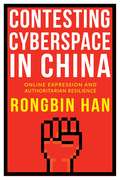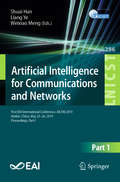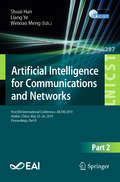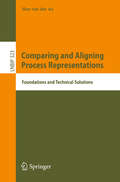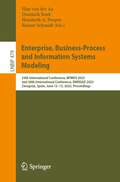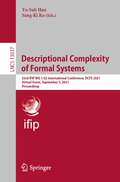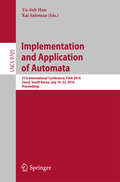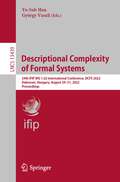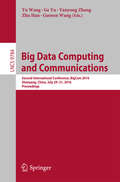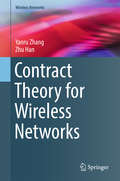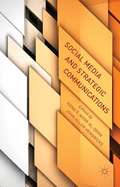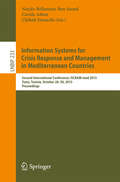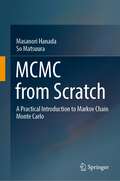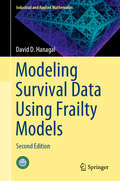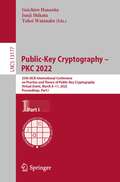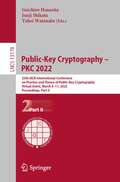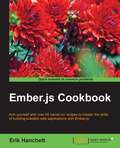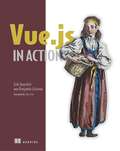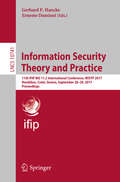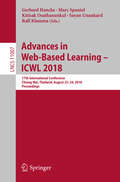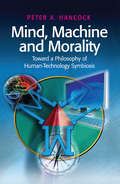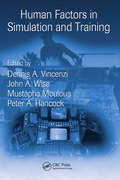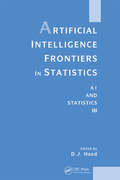- Table View
- List View
Contesting Cyberspace in China: Online Expression and Authoritarian Resilience
by Rongbin HanThe Internet was supposed to be an antidote to authoritarianism. It can enable citizens to express themselves freely and organize outside state control. Yet while online activity has helped challenge authoritarian rule in some cases, other regimes have endured: no movement comparable to the Arab Spring has arisen in China. In Contesting Cyberspace in China, Rongbin Han offers a powerful counterintuitive explanation for the survival of the world’s largest authoritarian regime in the digital age.Han reveals the complex internal dynamics of online expression in China, showing how the state, service providers, and netizens negotiate the limits of discourse. He finds that state censorship has conditioned online expression, yet has failed to bring it under control. However, Han also finds that freer expression may work to the advantage of the regime because its critics are not the only ones empowered: the Internet has proved less threatening than expected due to the multiplicity of beliefs, identities, and values online. State-sponsored and spontaneous pro-government commenters have turned out to be a major presence on the Chinese internet, denigrating dissenters and barraging oppositional voices. Han explores the recruitment, training, and behavior of hired commenters, the “fifty-cent army,” as well as group identity formation among nationalistic Internet posters who see themselves as patriots defending China against online saboteurs. Drawing on a rich set of data collected through interviews, participant observation, and long-term online ethnography, as well as official reports and state directives, Contesting Cyberspace in China interrogates our assumptions about authoritarian resilience and the democratizing power of the Internet.
Artificial Intelligence for Communications and Networks: First EAI International Conference, AICON 2019, Harbin, China, May 25–26, 2019, Proceedings, Part I (Lecture Notes of the Institute for Computer Sciences, Social Informatics and Telecommunications Engineering #286)
by Shuai Han Liang Ye Weixiao MengThis two-volume set LNICST 286-287 constitutes the post-conference proceedings of the First EAI International Conference on Artificial Intelligence for Communications and Networks, AICON 2019, held in Harbin, China, in May 2019. The 93 full papers were carefully reviewed and selected from 152 submissions. The papers are organized in topical sections on artificial intelligence, mobile network, deep learning, machine learning, wireless communication, cognitive radio, internet of things, big data, communication system, pattern recognition, channel model, beamforming, signal processing, 5G, mobile management, resource management, wireless position.
Artificial Intelligence for Communications and Networks: First EAI International Conference, AICON 2019, Harbin, China, May 25–26, 2019, Proceedings, Part II (Lecture Notes of the Institute for Computer Sciences, Social Informatics and Telecommunications Engineering #287)
by Shuai Han Liang Ye Weixiao MengThis two-volume set LNICST 286-287 constitutes the post-conference proceedings of the First EAI International Conference on Artificial Intelligence for Communications and Networks, AICON 2019, held in Harbin, China, in May 2019. The 93 full papers were carefully reviewed and selected from 152 submissions. The papers are organized in topical sections on artificial intelligence, mobile network, deep learning, machine learning, wireless communication, cognitive radio, internet of things, big data, communication system, pattern recognition, channel model, beamforming, signal processing, 5G, mobile management, resource management, wireless position.
Comparing and Aligning Process Representations: Foundations and Technical Solutions (Lecture Notes in Business Information Processing #323)
by Han van der AaThis doctoral thesis focuses on the spread of process information in organizations and, in particular, on the mitigation of the problems caused by the spread of information on a single process over numerous models, documents, and systems.Processes within organizations can be highly complex chains of inter-related steps, involving numerous stakeholders and information systems. Due to this complexity, having access to the right information is vital to the proper execution and effective management of an organization’s business processes. The main contributions of this thesis are five techniques that focus on the alignment and comparison of process information from different informational artifacts. Each of these techniques tackles a specific scenario involving multiple informational artifacts that contain process information in different representation formats.
Enterprise, Business-Process and Information Systems Modeling: 24th International Conference, BPMDS 2023, and 28th International Conference, EMMSAD 2023, Zaragoza, Spain, June 12–13, 2023, Proceedings (Lecture Notes in Business Information Processing #479)
by Han van der Aa Dominik Bork Henderik A. Proper Rainer SchmidtThis book contains the refereed proceedings of two long-running events held along with the CAiSE conference relating to the areas of enterprise, business-process and information systems modeling: * the 24th International Conference on Business Process Modeling, Development and Support, BPMDS 2023, and * the 28th International Conference on Exploring Modeling Methods for Systems Analysis and Development, EMMSAD 2023. The conferences were taking place in Zaragoza, Spain, during June 12-13, 2023. For BPMDS 9 full papers and 2 short papers were carefully reviewed and selected for publication from a total of 26 submissions; for EMMSAD 9 full papers and 3 short papers were accepted from 26 submissions after thorough reviews. The BPMDS papers deal with a broad range of theoretical and applications-based research in business process modeling, development and support. EMMSAD focusses on modeling methods for systems analysis and development.
Descriptional Complexity of Formal Systems: 23rd IFIP WG 1.02 International Conference, DCFS 2021, Virtual Event, September 5, 2021, Proceedings (Lecture Notes in Computer Science #13037)
by Yo-Sub Han Sang-Ki KoThis book constitutes the proceedings of the 23rd International Conference on Descriptional Complexity of Format Systems, DCFS 2021, which was supposed to take place in Seoul South Korea in June 2021, but the conference was canceled due to the COVID-19 crisis.The 16 full papers presented in this volume were carefully reviewed and selected from 21 submissions. The conference focus to all aspects of descriptional complexity-the costs of description of objects in various computational models such as Turing machines, pushdown automata, finite automata or grammars.
Implementation and Application of Automata
by Yo-Sub Han Kai SalomaaThis book constitutes the refereed proceedings of the 21st InternationalConference on Implementation and Application of Automata, CIAA 2016, held in Seoul, South Korea, in July 2016. The 26 revised full papers presented were carefully reviewed and selected from49 submissions. The papers cover a wide range of topics including characterizations of automata, computing distances between strings and languages, implementations ofautomata and experiments, enhanced regular expressions, and complexity analysis.
Descriptional Complexity of Formal Systems: 24th IFIP WG 1.02 International Conference, DCFS 2022, Debrecen, Hungary, August 29–31, 2022, Proceedings (Lecture Notes in Computer Science #13439)
by Yo-Sub Han György VaszilThis book constitutes the proceedings of the 24th International Conference on Descriptional Complexity of Format Systems, DCFS 2022, which was supposed to take place in Debrecen, Hungary in August 2022.The 14 full papers presented in this volume were carefully reviewed and selected from 17 submissions. The book also contains 4 invited talks. The conference focus to all aspects of descriptional complexity including Automata, grammars, languages, and other formal systems; various modes of operations and complexity measures.
Compressive Sensing for Wireless Networks
by Zhu Han Husheng Li Wotao YinCompressive sensing is a new signal processing paradigm that aims to encode sparse signals by using far lower sampling rates than those in the traditional Nyquist approach. It helps acquire, store, fuse and process large data sets efficiently and accurately. This method, which links data acquisition, compression, dimensionality reduction and optimization, has attracted significant attention from researchers and engineers in various areas. This comprehensive reference develops a unified view on how to incorporate efficiently the idea of compressive sensing over assorted wireless network scenarios, interweaving concepts from signal processing, optimization, information theory, communications and networking to address the issues in question from an engineering perspective. It enables students, researchers and communications engineers to develop a working knowledge of compressive sensing, including background on the basics of compressive sensing theory, an understanding of its benefits and limitations, and the skills needed to take advantage of compressive sensing in wireless networks.
Game Theory in Wireless and Communication Networks
by Zhu Han Dusit Niyato Walid Saad Tamer Başar Are HjørungnesThis unified treatment of game theory focuses on finding state-of-the-art solutions to issues surrounding the next generation of wireless and communications networks. Future networks will rely on autonomous and distributed architectures to improve the efficiency and flexibility of mobile applications, and game theory provides the ideal framework for designing efficient and robust distributed algorithms. This book enables readers to develop a solid understanding of game theory, its applications and its use as an effective tool for addressing wireless communication and networking problems. The key results and tools of game theory are covered, as are various real-world technologies including 3G networks, wireless LANs, sensor networks, dynamic spectrum access and cognitive networks. The book also covers a wide range of techniques for modeling, designing and analysing communication networks using game theory, as well as state-of-the-art distributed design techniques. This is an ideal resource for communications engineers, researchers, and graduate and undergraduate students.
Big Data Computing and Communications: Second International Conference, BigCom 2016, Shenyang, China, July 29-31, 2016. Proceedings (Lecture Notes in Computer Science #9784)
by Zhu Han Yu Wang Yanyong Zhang Ge Yu Guoren WangThis book constitutes the proceedings of the First International Conference on Big Data Computing and Communications, BigCom 2015, held in Taiyuan, China, in August 2015. The 41 papers presented in this volume were carefully reviewed and selected from 74 submissions. They were organized in topical sections named: wireless communication and networks; database and big data; smart phone and sensing application; security and privacy; architecture and applications; sensor networks and RFID; social networks and recommendation; signal processing and pattern recognition; and routing and resource management.
Contract Theory for Wireless Networks (Wireless Networks)
by Zhu Han Yanru ZhangThis book presents theoretical research between wireless communications, networking, and economics using the framework of contract theory. This work fills a void in the literature by closely combining contract theoretical approaches with wireless networks design problems. Topics covered include classification in contract theory, reward design, adverse selection, and moral hazard. The authors also explore incentive mechanisms for device-to-device communication in cellular networks, insurance plans for service assurance in cloud computing markets with incomplete information, multi-dimensional incentive mechanisms and tournament based incentive mechanisms in mobile crowdsourcing. Financial applications include financing contracts with adverse selection for spectrum trading in cognitive radio networks and complementary investment of infrastructure and service providers in wireless network visualization. This book offers a useful reference for engineers and researchers in the wireless communication community who seek to integrate the notions from contract theory and wireless engineering, while emphasizing on how contract theory can be applied in wireless networks. It is also suitable for advanced-level students studying information systems or communications engineering.
Social Media and Strategic Communications
by Hana S. Noor Al-Deen John Allen HendricksSocial Media and Strategic Communications provides truly comprehensive and original scholarly research that exhibits the strategic implementation of social media in both advertising and public relations.
Information Systems for Crisis Response and Management in Mediterranean Countries
by Chihab Hanachi Carole Adam Narjès Bellamine Ben SaoudThis book constitutes the refereed proceedings of the Second International Conference on Information Systems for Crisis Response and Management in Mediterranean Countries, ISCRAMmed 2015, held in Tunis, Tunisia, in October 2015. The objectives of the ISCRAMmed conference are to provide an outstanding opportunity and an international forum for local and international researchers, practitioners, and policy makers to address and discuss new trends and challenges with respect to information systems for crisis response and disaster management. The 14 full papers and 4 short papers presented in this volume were carefully reviewed and selected from 41 submissions. They are organized in topical sections on social computing, modeling and simulation, information and knowledge management, engineering of emergency management systems, and decision support systems and collaboration.
MCMC from Scratch: A Practical Introduction to Markov Chain Monte Carlo
by Masanori Hanada So MatsuuraThis textbook explains the fundamentals of Markov Chain Monte Carlo (MCMC) without assuming advanced knowledge of mathematics and programming. MCMC is a powerful technique that can be used to integrate complicated functions or to handle complicated probability distributions. MCMC is frequently used in diverse fields where statistical methods are important – e.g. Bayesian statistics, quantum physics, machine learning, computer science, computational biology, and mathematical economics. This book aims to equip readers with a sound understanding of MCMC and enable them to write simulation codes by themselves. The content consists of six chapters. Following Chap. 2, which introduces readers to the Monte Carlo algorithm and highlights the advantages of MCMC, Chap. 3 presents the general aspects of MCMC. Chap. 4 illustrates the essence of MCMC through the simple example of the Metropolis algorithm. In turn, Chap. 5 explains the HMC algorithm, Gibbs sampling algorithm and Metropolis-Hastings algorithm, discussing their pros, cons and pitfalls. Lastly, Chap. 6 presents several applications of MCMC. Including a wealth of examples and exercises with solutions, as well as sample codes and further math topics in the Appendix, this book offers a valuable asset for students and beginners in various fields.
Modeling Survival Data Using Frailty Models: Second Edition (Industrial and Applied Mathematics)
by David D. HanagalThis book presents the basic concepts of survival analysis and frailty models, covering both fundamental and advanced topics. It focuses on applications of statistical tools in biology and medicine, highlighting the latest frailty-model methodologies and applications in these areas. After explaining the basic concepts of survival analysis, the book goes on to discuss shared, bivariate, and correlated frailty models and their applications. It also features nine datasets that have been analyzed using the R statistical package. Covering recent topics, not addressed elsewhere in the literature, this book is of immense use to scientists, researchers, students and teachers.
Public-Key Cryptography – PKC 2022: 25th IACR International Conference on Practice and Theory of Public-Key Cryptography, Virtual Event, March 8–11, 2022, Proceedings, Part I (Lecture Notes in Computer Science #13177)
by Goichiro Hanaoka Junji Shikata Yohei WatanabeThe two-volume proceedings set LNCS 13177 and 13178 constitutes the refereed proceedings of the 25th IACR International Conference on Practice and Theory of Public Key Cryptography, PKC 2022, which took place virtually during March 7-11, 2022. The conference was originally planned to take place in Yokohama, Japan, but had to change to an online format due to the COVID-19 pandemic.The 40 papers included in these proceedings were carefully reviewed and selected from 137 submissions. They focus on all aspects of public-key cryptography, covering cryptanalysis; MPC and secret sharing; cryptographic protocols; tools; SNARKs and NIZKs; key exchange; theory; encryption; and signatures.
Public-Key Cryptography – PKC 2022: 25th IACR International Conference on Practice and Theory of Public-Key Cryptography, Virtual Event, March 8–11, 2022, Proceedings, Part II (Lecture Notes in Computer Science #13178)
by Goichiro Hanaoka Junji Shikata Yohei WatanabeThe two-volume proceedings set LNCS 13177 and 13178 constitutes the refereed proceedings of the 25th IACR International Conference on Practice and Theory of Public Key Cryptography, PKC 2022, which took place virtually during March 7-11, 2022. The conference was originally planned to take place in Yokohama, Japan, but had to change to an online format due to the COVID-19 pandemic.The 40 papers included in these proceedings were carefully reviewed and selected from 137 submissions. They focus on all aspects of public-key cryptography, covering cryptanalysis; MPC and secret sharing; cryptographic protocols; tools; SNARKs and NIZKs; key exchange; theory; encryption; and signatures.
Ember.js cookbook
by Erik HanchettAnyone who wants to explore Ember.js and wishes to get hands on making sophisticated web apps with less coding will find this book handy. Prior experience in Coding and familiarity with JavaScript is recommended. If you've heard of Ember.js or are just curious on how a single-page application framework works, then this book is for you.
Vue.js in Action
by Erik Hanchett Ben ListwonVue.js is a front-end framework that builds on many of the reactive UI ideas introduced in React.js. Vue.js in Action teaches readers to build fast, flowing web UI with the Vue.js framework. As they move through the book, readers put their skills to practice by building a complete web store application with product listings, a checkout process, and an administrative interface!Purchase of the print book includes a free eBook in PDF, Kindle, and ePub formats from Manning Publications.
Information Security Theory and Practice: 11th IFIP WG 11.2 International Conference, WISTP 2017, Heraklion, Crete, Greece, September 28–29, 2017, Proceedings (Lecture Notes in Computer Science #10741)
by Gerhard P. Hancke Ernesto DamianiThis volume constitutes the refereed proceedings of the 11th IFIP WG 11.2 International Conference on Information Security Theory and Practices, WISTP 2017, held in Heraklion, Crete, Greece, in September 2017. The 8 revised full papers and 4 short papers presented were carefully reviewed and selected from 35 submissions. The papers are organized in the following topical sections: security in emerging systems; security of data; trusted execution; defenses and evaluation; and protocols and algorithms.
Advances in Web-Based Learning – ICWL 2018: 17th International Conference, Chiang Mai, Thailand, August 22-24, 2018, Proceedings (Lecture Notes in Computer Science #11007)
by Gerhard Hancke Marc Spaniol Kitisak Osathanunkul Sayan Unankard Ralf KlammaThis book constitutes the proceedings of the 17th International Conference on Web-Based Learning, ICWL 2018, held in Chiang Mai, Thailand, in August 2018.The 11 revised full papers presented together with 4 short papers were carefully reviewed and selected from 37 submissions. The papers are organized in topical sections on learning assessment and behavior; case studies; augmented reality and collaborative learning; game-based learning; and learning content management and experience sharing.
Mind, Machine and Morality: Toward a Philosophy of Human-Technology Symbiosis
by Peter A. HancockTechnology is our conduit of power. In our modern world, technology is the gatekeeper deciding who shall have and who shall have not. Either technology works for you or you work for technology. It shapes the human race just as much as we shape it. But where is this symbiosis going? Who provides the directions, the intentions, the goals of this human-machine partnership? Such decisions do not derive from the creators of technology who are enmeshed in their individual innovations. They neither come from our social leaders who possess only sufficient technical understanding to react to innovations, not to anticipate or direct their progress. Neither is there evidence of some omnipotent 'invisible hand,' the simple fact is that no one is directing this enterprise. In Mind, Machine and Morality, Peter Hancock asks questions about this insensate progress and has the temerity to suggest some cognate answers. He argues for the unbreakable symbiosis of purpose and process, and examines the dangerous possibilities that emerge when science and purpose meet. Historically, this work is a modern-day child of Bacon's hope for the 'Great Instauration.' However, unlike its forebear, the focus here is on human-machine systems. The emphasis centers on the conception that the active, extensive face of modern philosophy is technology. Whatever we are to become is bound up not only in our biology but critically in our technology also. And to achieve rational progress we need to articulate manifest purpose. This book is one step along the purposive road. Drawing together his many seminal writings on human-machine interaction and adapting these works specifically for this collection, Peter Hancock provides real food for thought, delighting readers with his unique philosophical perspective and outstanding insights. This is theoretical work of the highest order and will open minds accordingly.
Human Factors in Simulation and Training
by Peter A. Hancock Mustapha Mouloua Dennis A. Vincenzi John A. WiseMeasure twice, cut once. Although applicable to all areas of human factors research, the old adage is especially relevant to simulation and training. As a tool, simulation is an aid to the imagination, however, if incorrectly or inadequately used, it can lead to inaccurate outcomes that not only limit the possibilities but potentially cause harm. A
Artificial Intelligence Frontiers in Statistics: Al and Statistics III
by David J. HandThis book presents a summary of recent work on the interface between artificial intelligence and statistics. It does this through a series of papers by different authors working in different areas of this interface. These papers are a selected and referenced subset of papers presented at the 3rd Interntional Workshop on Artificial Intelligence and Statistics, Florida, January 1991.
